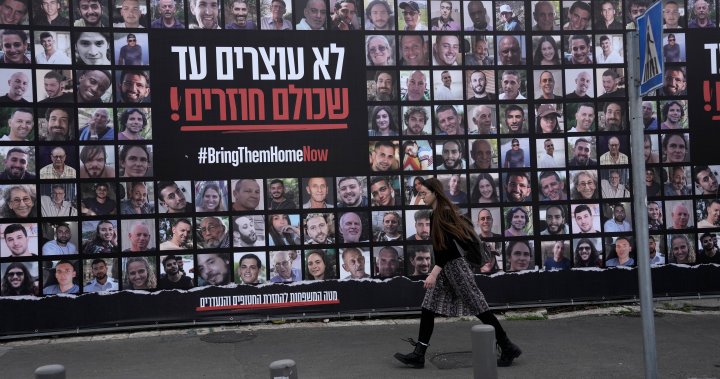from Israel The security cabinet recommended Friday the approval of a ceasefire agreement after Prime Minister Benjamin Netanyahu confirmed a deal had been reached that would end the 15-month conflict with Hamas In Gaza and free dozens of hostages held by militants there.
Qatar and US mediators announced a ceasefire on Wednesday, but the agreement remained in limbo for more than a day, with Netanyahu insisting there were last-minute problems that he blamed on Hamas.
Activists said they were “committed” to the deal, while Gazans and hostages’ families waited anxiously to see if it would come to fruition.
The agreement now goes to the full Cabinet of Ministers for final approval. He is expected to approve the ceasefire, which could begin as soon as Sunday, although it has drawn fierce resistance from Netanyahu’s far-right coalition partners. Their objections could, however, destabilize his government.
Hamas sparked the conflict with its October 7, 2023, cross-border attack in Israel, which killed some 1,200 people and left some 250 others captive.
Israel responded with a devastating offensive that has killed more than 46,000 Palestinians, according to local health authorities, who do not distinguish between civilians and militants but say women and children make up more than half of those killed.
Beyond the death and destruction in Gaza, the conflict has also destabilized the Middle East and sparked protests around the world.
On Thursday, Israeli strikes killed at least 72 people in Gaza. In previous conflicts, both sides intensified military operations in the final hours before the ceasefire in order to project force.

Netanyahu tasked a special task force with preparing to receive the hostages returning from Gaza and said their families had been informed that a deal had been reached. The prime minister’s office said that if the deal was reached, the ceasefire could begin on Sunday and the first hostages could also be released then.
Under the terms of the deal, 33 of the approximately 100 hostages remaining in Gaza are expected to be released within six weeks in exchange for hundreds of Palestinians imprisoned by Israel. Israeli forces will withdraw from many areas, hundreds of thousands of Palestinians will be able to return to what remains of their homes and humanitarian aid will increase.

Receive national news daily
Get the day’s top news, politics, business and current affairs headlines delivered to your inbox once a day.
The rest of the hostages, including male soldiers, are to be released in a second – much more difficult – phase which will be negotiated during the first.
Hamas has said it will not release the remaining prisoners without a lasting ceasefire and a complete withdrawal from Israel, while Israel has vowed to continue fighting until it dismantles the group and to maintain unlimited security control over the territory.

Jaher Jabareen, head of Hamas’ prisoners office, said Friday that the names of those expected to be released from Israeli prisons would be published, but did not specify when.
Longer-term questions about post-conflict Gaza remain, including who will rule the territory or oversee the arduous task of reconstruction.
An Egyptian official and a Hamas official confirmed that last-minute issues related to the list of Palestinian prisoners due to be released from Israeli jails during the first phase of the deal, but these have now been resolved. The two officials spoke on condition of anonymity to discuss the private negotiations. The Hamas official said the mediators showed Israel’s approval of the group.
The Egyptian official added that an Israeli delegation from the army and Israel’s internal security agency, the Shin Bet, arrived in Cairo on Friday to discuss the reopening of the Rafah crossing, a key link between the Gaza and Egypt. An Israeli official who also spoke on condition of anonymity to discuss the negotiations confirmed that a delegation was traveling to Cairo to discuss the passage.
Objections to the deal in Israel
On Thursday, Israeli National Security Minister Itamar Ben-Gvir threatened to leave the government if Israel approved the ceasefire. He reiterated this on Friday on the social network X: “If the agreement is concluded, we will leave the government with a heavy heart. »
Ben-Gvir’s resignation would not bring down the government or derail the ceasefire agreement, but the move would destabilize the government at a delicate time and could potentially lead to its collapse if Ben-Gvir is joined by other key Netanyahu allies.
Magdy brought from Cairo, Egypt
© 2025 The Canadian Press





